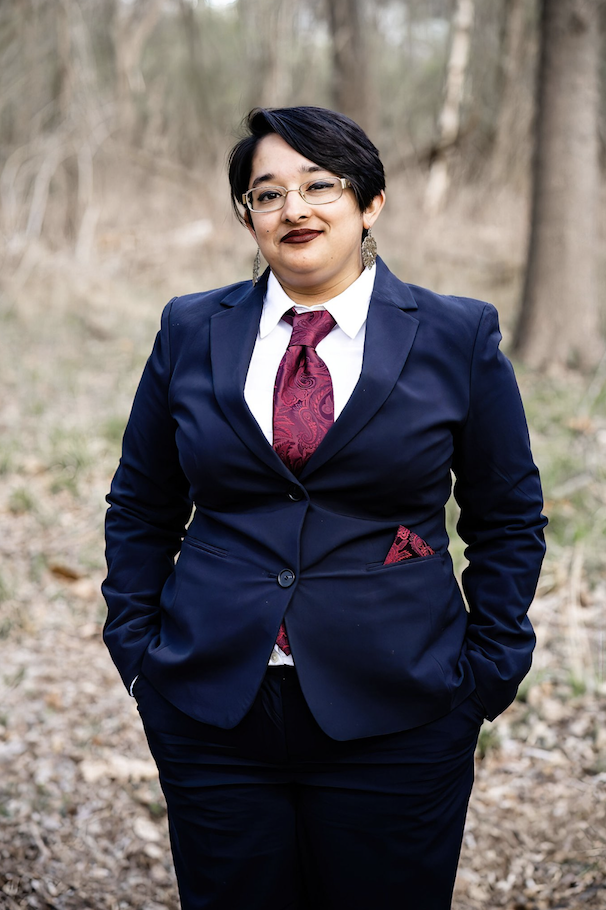By: Umme Kulsoom Arif
Pronouns: they/them
Age: 29
Why Did You Want To Attend The Activist Retreat?
I attended the Activist Retreat for the first time virtually in 2022, and it was a really affirming experience over those three days. However, I was really excited for an in-person retreat, especially because I had not really interacted with other Bohras who had experienced FGM/C or were even open to talking about the practice. I wanted to meet others who are doing the work that I was doing.
I’ve always treated the Activist Retreat as a part of the healing of my inner child and as a part of my journey through the five stages of grief. For the first year I attended, I was in the stage of anger over what had happened to me. During the second year, it was about forgiveness, because my mother and I have had some conversations about khatna since that first retreat.
What Have You Learned or Most Enjoyed at This Retreat?
I really was blown away by the sheer scale and range of ages of a lot of people. I’ve always thought that FGC activism was a young person's job. Our generation was doing the work, because previous generations had ostensibly failed us.
So I was really blindsided – yet also impressed and pleased to see – that we had moms and grandmothers in the space talking about how they prevented their daughters from being cut, or they themselves were saved from it. Learning that this work had been going on for longer than I have been alive was one of the most beautiful things to hear and just really empowering.
Why Are You Involved in the Movement Against Female Genital Cutting?
I was five when I was cut, and I was 19 when I found out. At the time that I found out I had been cut, I had one younger cousin and she was also cut despite my family's best attempts to prevent it from happening. For me, it's become important to change the narrative around the issue because even if our families try to prevent it from happening, it still happens to those we love.
That realization was really powerful and frustrating for me, because we deserve better out of our culture and our faith. It's also important for me as somebody who sees how much my mom loves being a Bohra, to make it something that she doesn't have to feel guilty or justify being because of the practice.
How Do You Think That This Retreat Will Inform Your Work as an Activist?
We had some interesting conversations at the retreat, especially around the Detroit case, and it forced me to process a lot of empathy for those who unfortunately do practice FGM/C. I also had the realization that the practice almost leads to a sort of cult-like mentality. As much as we know that “do no harm” from doctors is part of their oath, the harm of FGM/C does not seem to be seen as harm. That has changed a lot of my anger towards the culture, and it has just forced me to be a little bit kinder in thought to those who still support and practice it — especially as we are trying to change their minds.
What Work Are You Doing Currently or Are Hoping to Do In the Future?
I'm working on presenting a paper for the Association for Asian Studies Conference on March 14-17. It’s about the intersection of queerness and FGM/C, and what it means to be a non-binary survivor of FGM/C in a space that is incredibly female-focused. One of the things I processed at the retreat was that these spaces— despite the fact that I use they/them pronouns— are where I am most often referred to as a woman. That’s because most people consider the practice to be centered around womanhood and femininity.
As I don't engage with womanhood in a traditional manner, this can be difficult. So my work is centered around trying to reframe it for myself and other non-binary survivors. The harm was done to us was because of a perception of womanhood that was forced upon our bodies. And therein lies the second injustice of FGM/C for non-binary survivors – the denial of our ability to choose our own identities over the one that is placed upon us. That's what my paper is tackling.
How Did This Second Retreat Make You Feel?
I felt empowered. The retreat always makes me feel powerful and I find myself leaving with a lot of clarity for what my next steps for my activism are in the coming year. One of my big goals that came out of the retreat was finishing the paper, as I mentioned previously.
Also, finding others who had survived FGM/C – speaking to these people who had such varied lives, that weren't just centered around being a survivor – makes me feel like we're not alone. There is a line by Rumi, the poet, “Ours is not a caravan of Despair”, and that line comes to me every time I think about the retreat—this is not the Caravan of Despair that we think it is when we're alone.
Do You Have Anything Else You Would Like to Share? Something You Can Share With Other People Who Might be Interested in The Retreat?
If you are ever afraid that you're not going to fit in because you don't fit the traditional mold of a survivor—you will. Everybody is very welcoming.
Related:

